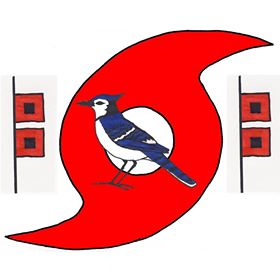Tropical Cyclone Mona turned back toward Fiji on Saturday. At 10:00 p.m. EST on Saturday the center of Tropical Cyclone Mona was located at latitude 14.9°S and longitude 179.2°E which put it about 250 miles (400 km) north of Suva, Fiji. Mona was moving toward the east-southeast at 16 m.p.h. (26 km/h). The maximum sustained wind speed was 40 m.p.h. (65 km/h) and there were wind gusts to 50 m.p.h. (80 km/h). The minimum surface pressure was 1002 mb.
After being strongly sheared and making a slow clockwise loop on Friday, Tropical Cyclone Mona resumed a course toward Fiji on Saturday. An upper level trough west of Fiji was producing northwesterly winds which were blowing toward the top of Tropical Cyclone Mona. Those winds were causing moderate vertical wind shear and they were also causing the distribution of thunderstorms around Mona to be asymmetrical. The strongest thunderstorms and winds were occurring in bands southeast of the center of circulation. Bands in the other parts of the circulation consisted primarily of showers and lower clouds.
Tropical Cyclone Mona will move through an environment marginally favorable for intensification during the next 24 hours. Mona will move over water where the Sea Surface Temperature is near 28°C. The upper level trough west of Fiji will continue to cause moderate vertical wind shear which will inhibit development. Tropical Cyclone Mona could strengthen a little bit on Sunday, but it is likely to remain close to its current intensity.
The upper trough will steer Tropical Cyclone Mona toward the south-southeast during the next 12 hours. The trough is forecast to cutoff and make a transition to an upper low. The low will steer Mona more toward the south between 12 and 36 hours into the future. Tropical Cyclone Mona will turn more toward the southwest on Monday. On its anticipated track the center of Mona will pass near the northeastern end of Vanua Levu in about 12 hours.
Tropical Cyclone Mona will bring wind and rain to Vanua Levu and the eastern islands of Fiji. Locally heavy rain could cause flash floods in some locations.
Elsewhere, Tropical Cyclone Penny was moving over the Coral Sea back toward Queensland. At 10:00 p.m. EST on Saturday the center of Tropical Cyclone Penny was located at latitude 17.2°S and longitude 154.8°E which put it about 605 miles (980 km) east of Cairns. Penny was moving toward the southwest at 14 m.p.h. (22 km/h). The maximum sustained wind speed was 45 m.p.h. (75 km/h) and there were wind gusts to 60 m.p.h. (95 km/h). The minimum surface pressure was 996 mb.
